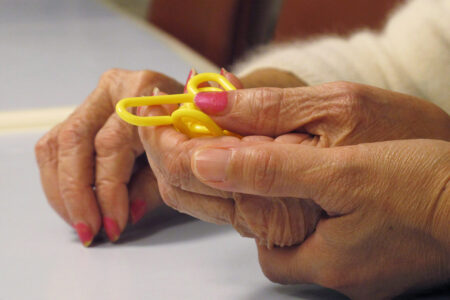
Under normal circumstances, the Ontario Mental Health Act allows involuntary hospitalization of a capable person who has a mental disorder that is “likely” to result in “serious bodily harm” to the person or to another individual, or “serious physical impairment” of the person. (An additional ground for hospitalization that applies for some people who lack decision-making capacity is a risk of “substantial mental or physical deterioration.”) A more relaxed interpretation of the “bodily harm” and “physical impairment” criteria during a pandemic might contribute to protecting people with mental illness and the public as a whole.
Under current interpretations of the Act, the risk to people with mental illness of contracting the virus would be unlikely to meet the high threshold for involuntary hospitalization of capable people in most cases. This is because most people seem to experience a relatively mild course of illness if they do become infected. But the danger to others increases when an individual is infected and is non-compliant. With the prevailing interpretation of the Act, it is not clear that non-compliance by an infected person would meet the standard of “serious bodily harm” to others except in certain cases: for instance, if a person is known to live with elderly people.
During a public health emergency, should the threshold of risk to others that justifies hospitalization be informed by the public health standard as to when risky behaviour justifies fines or prosecution? This would be a looser interpretation of the mental health standard than is applied in normal circumstances.
Expanding the use of involuntary hospitalization would be controversial. For one thing, anyone in hospital faces an elevated risk of contracting or transmitting the infection, given the higher concentration of infected persons within hospitals. Second, some regard involuntary hospitalization as an extreme deprivation of liberty for people with mental illness. On the other hand, others with lived experience have looked back on a period in which they were very ill and suggested they might have needed this type of intervention.
It would be unfair to expand the use of involuntary hospitalization of uninfected persons with mental illness who are not compliant with public health directives, when the same degree of non-compliance by people without mental illness would result in only fines and not confinement. The question arises only when a person’s actions are serious enough to warrant the next level of public health measures, like arrest or prosecution: violations such as failure to self-isolate when infected. In these cases, the scales may tilt toward hospitalization if the behaviour is due to mental illness.
The standard criteria for involuntary hospitalization may already be met, in fact, with infected persons who deliberately spit or cough on others. A restriction on liberty like involuntary hospitalization should not be considered lightly, but the added risks during a pandemic might allow a broader approach in evaluating the risks.
Going forward, pandemic response and preparedness programs should include structures and resources that assist mentally ill persons to follow public health directives. Although measures such as increased supported living space, mobile treatment units and better financing of the shelter system would not resolve all of the challenges, they would help and should be pursued both now and after the pandemic.
Written with the collaboration of Dr. Kwame McKenzie, Dr. Simon Hatcher and Dr. Olivia Lee.
This article is part of the The Coronavirus Pandemic: Canada’s Response special feature.












